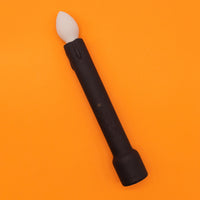Samantha Jones famously said in
The Sex and The City Movie, “I love you, but I love me more,” when breaking up with her (very hot) actor/model boyfriend, Smith.
This sentiment stuck for women everywhere (this author included), not because we wanted to be single and ready to mingle for all time, but because of what it really implied: that self-love is the most important love there is.
Women — all women-identifying people — are so often bracketed into the role of “caregiver,” that we are prone to put the needs of others ahead of our own, giving ourselves over completely to the will of another. Sometimes we do this willingly; other times societal pressures make it so.
To add to this emotional mayhem, the Patriarchy’s strict gendered hierarchy places a woman’s value almost entirely on whether she has “snagged” a man and been deemed worthy enough to receive the labels “girlfriend,” “fiancé,” “wife.”
And frankly, that’s some bullshit.
You should always love yourself first, even if it’s the tiniest little smidgen of a percentage more than you love the love of your life. This rule applies to every single kind of person, regardless of gender or relationship status. The relationship you have with yourself is the only one that truly lasts forever. You better make it damn good.
A little selfishness is not really a bad thing
“Self-love is ‘self-centeredness’ in a wonderful way; it is the regard for happiness and appraisal of yourself,” says
Dr. Cynthia L. Dougherty Ph.D., a neuropsychologist and relationship coach. Sometimes being a bit selfish with your love is actually a good thing. It feeds you and sustains you.
“Being happy and loving opens up the learning centers to your brain, your brain lights up like the view from a plane over Las Vegas!” Dougherty says. “Both giving and receiving love can make your brain light up like this so, when the love is focused on yourself it creates even more positive brain activity.”
While being
in love is really great and wonderful, if you don’t love yourself first, you can lose out on some of that critical growth that we all need to be full, whole, happy humans.
Loving yourself makes you better at relationships
To be totally clear, loving yourself first does not mean you can’t fully love another person. Love is not a finite resource that can dry up. When you love yourself the most, a partner can be a beautiful and magical close second.
This may sound a bit unconventional, but it makes for stronger, better relationships. “When you regularly and fully love yourself (this can be through self-care, date nights, or just saying “no” to things that don’t interest you) you move forward with a greater sense of security with relationships,” Dougherty says.
It’s about reminding yourself how amazing and fantastic you are. The minute you start to lose sight of who
you are outside of your relationship, the relationship suffers.
“Self-love leads to effective boundaries which protects self esteem and allows both members of the couple to freely communicate without triggering a negative defensive reaction,” Dougherty adds. Being confident in yourself and in your self-love is not only sexy, it helps the relationship thrive and grow.
Self-love goes both ways
Healthy relationships are about loving yourself, your partner, and having that love reciprocated. “Relationships exist to have someone by your side to support you and experience exciting new things with, and it should be as electrifying as possible. If this feeling is consistent, you are with the right person for you for right now,” says Maria Sullivan, dating expert and VP of
Dating.com.
Self-love not only nourishes a healthy relationship, it helps you recognize when something is toxic or damaging. All too often we wind up staying in bad relationships because we’re so afraid to be alone that we’d rather settle for some mediocre crap than actually do the work to find something worthwhile.
“Some consequences of forgetting self-care can include: codependency, never feeling loved enough, increased insecurity and lower intimacy, increased fearfulness of abandonment by your partner, which in term increases clinginess and jealousy,” Dougherty says. This does not a healthy relationship make.
“If you start to feel like you are changing yourself to appease your S.O., it may be time to break things off,” Sullivan explains. “You need support as you grow and it’s not worth changing yourself to prolong a situation that doesn’t flow naturally. If you notice these types of behaviors taking shape, don’t be afraid to bring it up to him or her directly – and if nothing changes, know that this relationship isn’t for you. It’s more important to find someone who likes you for you.”
When you love yourself, you hold yourself to high standards in all things. If someone isn’t giving you the love and support you deserve, you aren’t afraid to walk away.
Things to think about.















































